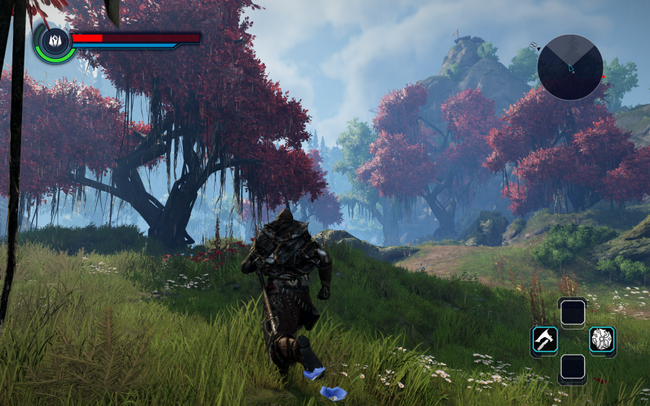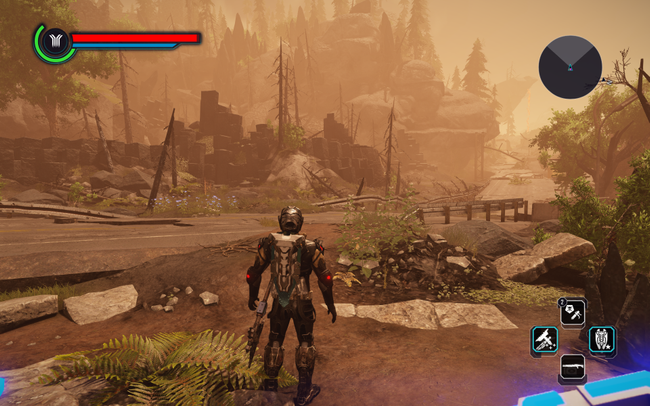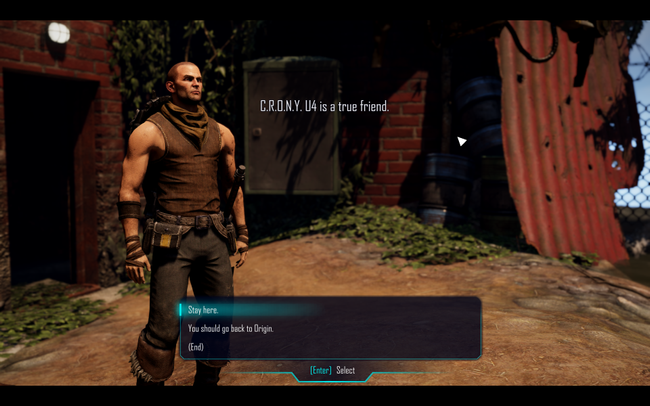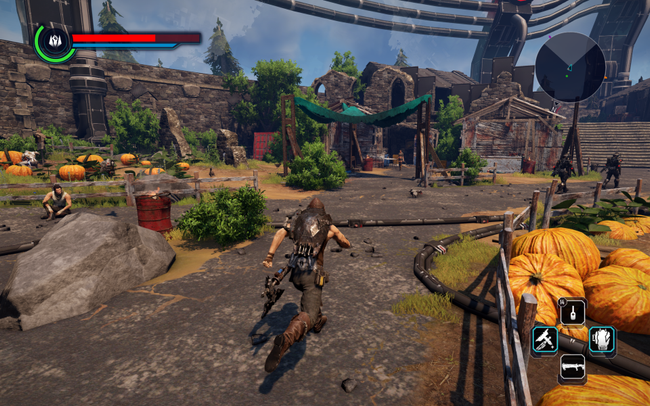Elex Review
October of 2017 was a pretty hectic month for video games. Assassin’s Creed returned from its yearlong sabbatical in the form of Assassin’s Creed Origins, Super Mario Odyssey gave fans the freeform platforming they had been longing for since 2002’s Super Mario Sunshine, and Wolfenstein II: The New Colossus gave us all a reason to fight back against tyranny. All on the same day!
Piranha Byte’s Elex had come out the week before. It was understandably a bit of an afterthought.
.jpg)
I had heard all sorts of various scuttlebutt before diving into Elex earlier this year. That it was unforgivingly buggy and frustratingly difficult. That it comprised mostly of awkward and stilted dialogue, generic world design, and an overall bland aesthetic. In private chats with friends I would show off my “Skyrim reject” character and laugh at obnoxiously overt bugs. But I kept wanting to play more of the game anyways. I’m not sure if the desire stemmed from me wanting to give the game a fair shake, a sort of morbid curiosity, or something else.
While I somewhat expected to be ironically entertained by aggressive mediocrity, I ended up finding some of the best quest design in a video game since Fallout: New Vegas.
Elex is a new IP for Piranha Bytes, the creative force behind the Gothic and Risen series. Now, I’m not really familiar with either of those series in any respect other than knowing that they are far from critical darlings – the Risen series averages a paltry 70 on Metacritic. However, the sci-fi-fantasy blending of the game intrigued me enough to give it a fair shake and to not quit just because I happened to die a dozen times in the first handful of hours.
.jpg)
The premise of Elex is pretty simple. The game takes place on the world of Magalan, though it pretty much could just be a substitute Earth where magic exists. A strange comet hits the planet before the outset of the game, wiping out a good chunk of civilization. Along with the comet came the eponymous element Elex, which kinda acts as a catch-all material that’s incredibly valuable. It can power humans and give them magic powers, sustain previously untenable technological advances, can be converted into mana, and even acts as the civilization's currency.
Elex is also dangerous however, both humans and animals on Magalan have mutated due to prolonged exposure to the stuff. It’s easy to see how the material is central to all of the game’s conflicts.
The game is part post-apocalyptic, part fantasy. You’ll see the husks of broken down cars and dilapidated buildings from times before the meteor hit, but you’ll also romp through lush woodland areas and icy fields. There's a good bit of variety in the environmental design, though at times it feels a bit phony.

Core to both the gameplay and world design of Elex is the Faction system. I'm not familiar enough with the Gothic or Risen series to know exactly what extent those games are designed around a similar mechanic, but for Elex it's woven into the game completely. The game has effectively 4 factions. There are the Berserkers, a primitive magic-using civilization that follows strict laws and detests technology. The Outlaws are a bit of the opposite, favoring anarchy and pursuit of profit over law and order. The Clerics are a very religious group that sees themselves as the protectorate and representatives of all of Magalan's Free People, and then the Albs serve as the game's primary antagonists: Elex-doped super soldiers that want to snuff out the remaining Elex on the planet for unknown reasons.
One of the major gameplay components of the game is choosing one of the first three factions to ally with as you slowly learn more about the Albs and what's truly been happening since the comet impact.
Each faction occupies a region of the world map, with a 5th region acting as a neutral zone where multiple groups intersect. It's put together in a way that never feels quite genuine or natural: every Alb-focused region is covered in ice, the Outlaws all live in a desert area, the Berserkers live in the forest. The game does make an attempt to explain why this is the case for certain groups: for instance, the Berserkers are shown making a concentrated effort to regrow the fauna where they inhabit, explaining the heavy amount of vegetation around their cities. Even with a handful of these sorts of justifications, the awkwardly strict delineation of each area makes the regions of the world map feel more like cogs in a machine rather than something more natural.

By far the strongest aspect of the game is its quest writing and the clever ways the various subplots interlock. Since the game strongly leans on its faction mechanic, the large majority of questlines will usually involve taking a side in that conflict, at least implicitly, even before the player makes an official decision about which faction they want to join. A few of the more overt ways that the game forces these decisions on the player include deciding how to handle Cleric spy within the Berserker encampment, or whether to turn in a Berserker that is secretly trading with an Outlaw merchant. The Outlaw region also has a Cleric held prisoner, and there are several other similar little stories that will ask the player about what they value and what they are willing to do in order to get into someone's favor.
Many of the quest lines also have far-reaching consequences, and they are much more than just chore-lists that reward some bespoke amount of goodies upon completion. Upon a quest completion, the game will usually knock it off your logbook and give you some experience, the standard fare. However, returning to the person who initiated the quest will usually result in new dialog, additional rewards, and a general reflection of what your character's reputation is forming towards with the actions you've taken. And it doesn't stop there. One finished questline resulted in the interested party refusing to pay me money due to how I carried out the task. Another questline rewarded me for "tricking" a certain NPC into thinking that I had done something he had asked for, only for him to sabotage a future sub-story once he found out about the treachery. Another quest gives you arguably its "best" reward if you decide to not complete it at all.
The game will sometimes give general hints as to the extended consequences of making (or not making) a certain decision such as "NPC-A will remember that" or "So-and-so's death will change the story", but never in a way where it feels like you can game the system for some sort of optimal outcome. Interacting with the world in Elex through these quests is definitely more about acting on behalf of your own character's motivations and beliefs, and less about trying to please everyone just to get the best reward and ending. It's a role-playing game, through and through.

It's a shame that the rest of the gameplay just simply doesn't stand up next to this strength of the game. World exploration is pretty dull (though occasionally pretty) with the jetpack-mechanic feeling more like a way to avoid awkward fall deaths rather than actually being an interesting traversal mechanic on its own. Combat is incredibly awkward and stiff, with engaging in large fights usually being more of a chore rather than something fun or interesting to overcome. I found the game incredibly difficult at first, and while setting the difficulty down to easy and setting the stamina to infinite did alleviate the frustrations, it didn't really make combat fun either.
My main issues with the combat include the game not wanting to switch targets easily when in the middle of animations, and also the lack of hitstun when using anything other than a melee (or heavy) weapon. I found that I would want to switch targets in the middle of my melee attack pattern, usually in an attempt to try to stun a foe about to attack me, but this can't be done easily without stopping the attack animation entirely, making sure the new target is selected, and attacking again. Using ranged weapons I also found to be frustrating because enemies rarely would react to being blasted by an arrow or rifle, and would just run up to melee range anyways. You learn the tricks needed to fight effectively over time, but it often felt like you have to use your talents and equipment to specialize into one form of combat exclusively or else have a really difficult time doing any damage.
Overt bugs are also really commonplace. Within the first couple hours of the game I had found npcs walking into walls and enemies getting frozen mid-animation. Luckily most of the bugs were of this nature and not the short that blocked quest progression, but it was still frustrating to see these sorts of oddities every couple hours.

Elex is a hard game to genuinely recommend, it does so many important things to only an acceptable level or worse. It's a game that's carried based on the strength of its quest design, or more pessimistically, one that's let down by a general lack of polish and uninteresting combat. It feels like a nice refreshing counterpart to some modern rpgs that treat their quest lists more like chores, but as a complete package, it falls disappointingly short.